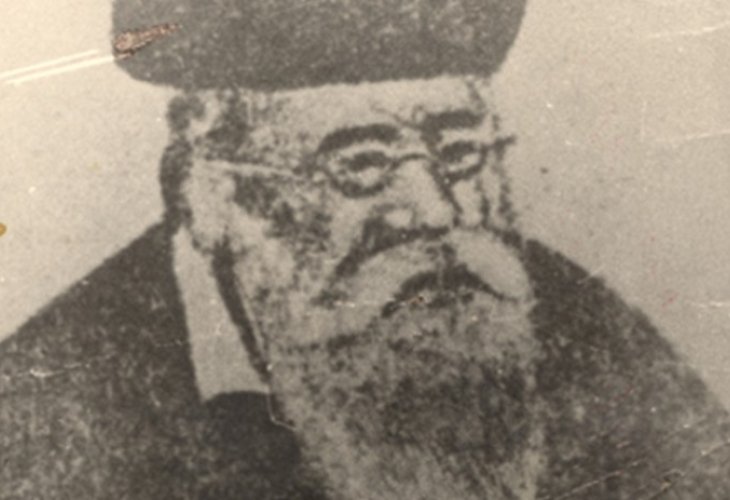Personal Stories
A Story for Shabbat: When Garlic Became a Gift of the Heart
A heartfelt tale of innocence and spiritual vision, revealing how even simple gifts can carry deep meaning in the eyes of a tzaddik.

The Hasid who entered the Rebbe’s room blinked in surprise. He didn’t actually rub his eyes after all, he was standing in the presence of a tzaddik but he certainly looked again to make sure he wasn’t imagining things. On the table of the holy Rabbi Yehoshua of Belz (whose yahrzeit, the anniversary of his passing, is on the 23rd of Shevat), sat a large basket filled with garlic. Huge, beautiful bulbs of garlic.
Every few moments, the Rebbe would take a bulb from the basket, turn it in his hands, admire it, and set it aside only to pick up another one.
The Hasid couldn’t help but wonder. “If they were oranges, or some kind of fruit with a nice smell or color maybe I could understand,” he thought. “But garlic?! What’s so special about garlic that the Rebbe is admiring it like this?”
Of course, he didn’t dare ask. He had too much respect. He knew the Rebbe was deeply involved in spiritual matters that were far beyond his understanding. But then, to his surprise, Rabbi Yehoshua decided to share the reason for his delight.
“A Jew from Hungary was just here,” the tzaddik said, “and he brought this large basket of garlic. This simple Jew truly believed he was bringing me bikkurim, first fruits.”
The Rebbe’s face shone as he praised the farmer’s sincerity. “If a Jew brings garlic with the pure intention of offering first fruits, shouldn’t we rejoice in such garlic as something holy, something connected to a mitzvah (commandment)?”
The Hasid thought he understood. He figured the Rebbe meant that nowadays, since the Beit HaMikdash (Holy Temple) no longer stands, maybe one could still bring bikkurim to a tzaddik as a sort of spiritual stand-in. And maybe, just maybe, garlic from Hungary was truly special, big, white, and beautiful, worthy of such an offering.
Rabbi Yehoshua smiled gently. “First fruits are only brought from the seven special species of the Land of Israel,” he said, “like wheat, barley, grapes, figs, pomegranates, olives, and dates. But this simple Jew thought the tzaddik is like the Kohen Gadol (High Priest), and his garlic was like bikkurim.”
The Hasid was so moved by this idea that he went looking for the Hungarian farmer. When he found him, he asked, “Were you the one who brought garlic to the Rebbe?”
The man nodded.
“Did you tell him it was first fruits?” asked the Hasid.
The farmer shook his head. “No, I didn’t say that. But the garlic was the best thing to come out of my field this year, so I brought it to the Rebbe as a gift. I thought to myself, if the Rebbe is like a holy priest, maybe the garlic could be like my offering.”
The Hasid was struck by the man's pure-heartedness and even more amazed by the Rebbe’s spiritual insight. Without being told anything, the tzaddik had understood exactly what was in the farmer’s heart.
On another occasion, the Hasidim saw even more clearly the far-reaching spiritual vision of their Rebbe.
During Passover, Jews are especially careful about the food they eat. In Belz, there was a tradition that on the eve of the holiday, live fish would be brought and cooked fresh for each day of Yom Tov (the holiday).
Every year, two Hasidim from the town of Siget in Hungary would travel to celebrate Pesach with Rabbi Yehoshua. They would always bring live fish with them, which they had bought ahead of time. But one year, they couldn’t bring any.
Then, something unusual happened. Just before the holiday began, at midday on Erev Pesach, live fish suddenly appeared in the river that flowed through Belz. Normally, that river had no fish at all. But this time, fish from faraway waters seemed to arrive all at once. The Hasidim were thrilled and rushed to catch them, bringing plenty of fresh fish to the Rebbe’s kitchen.
That night, at the Seder, the Rebbe smiled and said, “The fish traveled a long way to reach us.” Then, turning to the two Hasidim from Siget, he added, “This year, you didn’t bring fish so the fish came here themselves.”
These moments reminded the Hasidim just how attuned their Rebbe was, not just to Jewish law and custom, but to the thoughts and intentions of those around him. He could see the sincerity of a farmer and the silent path of a fish, and turn them both into a lesson in faith, simplicity, and divine connection.

